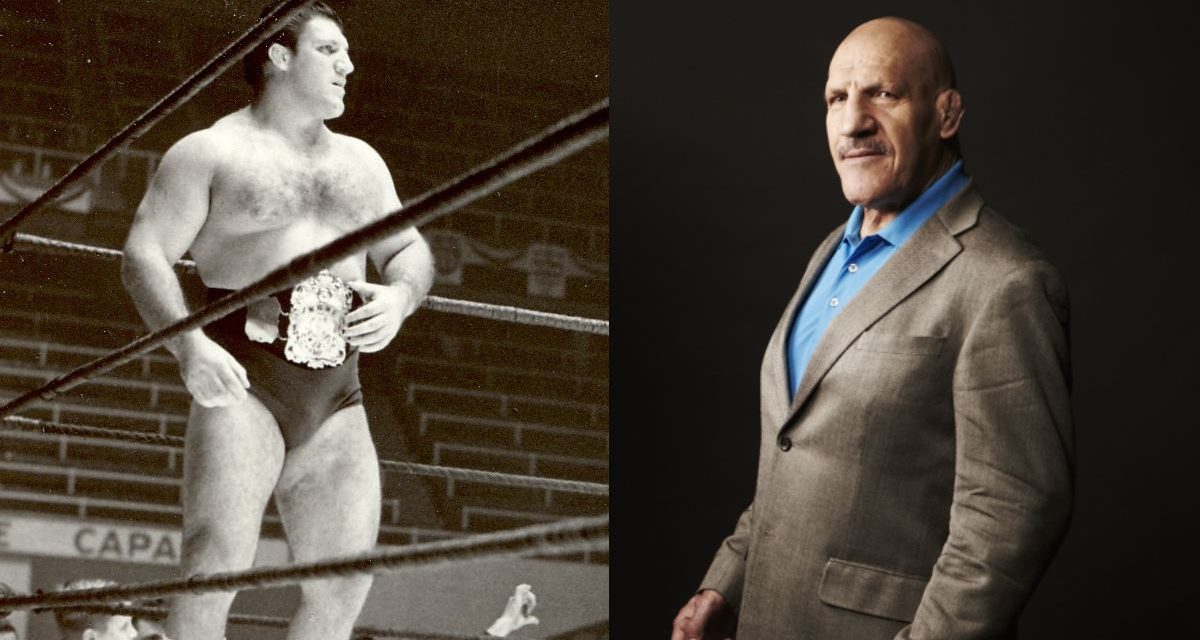During his two reigns as WWF World champion, Bruno Sammartino defended his title against some of the biggest stars in wrestling. Longtime fans recall his epic tilts with Gorilla Monsoon, “Cowboy” Bill Watts and Pedro Morales. He took on all comers in arenas across the U.S, Canada, Australia and Japan.
But for all the battles he had in buildings like Madison Square Garden, Pittsburgh Civic Centre and Philadelphia’s Spectrum, it’s the current feud he is involved in that is the most memorable. Far away from the confines of a wrestling ring, Sammartino has been embroiled in a 15-year feud with WWF owner Vince McMahon Jr. in the ring of public opinion.
“I retired from wrestling in 1981 and came back in 1984 to do colour commentary for the WWF,” Sammartino told SLAM! Wrestling recently. “When I saw what was going on after McMahon Jr. took over from his father, I said this wasn’t for me.”
A longtime critic of McMahon, Sammartino has been outspoken in his contempt for the man that changed the face of wrestling when he bought out his dad for controlling interest in the WWF in 1982.
“I didn’t want to be associated with it any more because the business that I had been in for 25 years had gone into the gutter and I didn’t want to be associated with it.”
Sammartino is an old school wrestler who doesn’t care for the circus-like complexion wrestling took in the 1980s. He competed in an era where wrestling emphasized athletics and where the fans believed in it. Wrestling, in its present incarnation, bears no resemblance to the sport that Sammartino once proudly served.
“I don’t watch it today because I’m disgusted and appalled. I refuse to watch it.”
While mainstream media outfits are shocked at how far McMahon pushes the envelope in the WWF with its sexual content and profanity, Sammartino isn’t surprised in the least.
“I know how low McMahon can go because I know what kind of a lowlife he is because I’ve known him for many, many years.”
While Sammartino may not be the only oldtimer who resented the direction McMahon took the WWF, he was one of the few to attack McMahon in print and TV interviews.
Sammartino walked away from the WWF in 1987 after his three-year contract as a colour commentator expired and left the organization. Bitter over how McMahon had turned pro wrestling into a cartoonish circus, he became McMahon’s most ardent and vocal adversary. As a result, Sammartino alienated himself from many of his contemporaries who stayed on with the promotion in some capacity.
“I expressed my views and was quite outspoken,” explained Sammartino. “People from my era kind of avoided me because by siding with me they were endangering their own positions with the organization.”
“I had resentment towards some of the guys who remained there even though privately they complained (about McMahon’s’s tactics),” continued Sammartino. “My feeling was, why complain? Do something about it. Let it be known that you disapproved.”
To Sammartino, the degradation of pro wrestling can’t be blamed entirely on McMahon. He feels there’s enough blame to go around.
“It appalls me that parents would allow their kids to go to these events and watch it on TV,” said Sammartino. “It appalls me that the TV stations would broadcast this type of garbage. As much as I despise McMahon for what he’s done, he couldn’t survive if it wasn’t for the stations that carried him and the people who watch it.”
McMahon is doing much more than surviving these days. The WWF is enjoying it’s greatest level of financial success with record TV ratings and huge PPV buyrates.
Sammartino doesn’t think the WWF’s current windfall will last forever. He cites the fact that in his era, the WWF ran Madison Square Garden and all the major arenas through out the Northeast 12 or 15 times a year. Today, as he astutely points out, the WWF runs Madison Square Garden six or seven times a year.
Sammartino, as in every interview he grants, is quick to point out that he headlined 211 shows at Madison Square Garden, 187 of which were sellouts serving as proof that actual wrestling can sell.
“When you go in (the direction) that McMahon has, this is something that isn’t long lasting. I was in this business for 25 years and we did continuous business in the arenas.”
RELATED LINK

